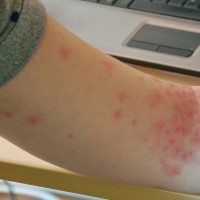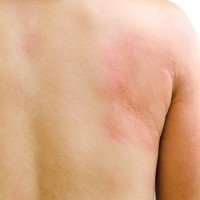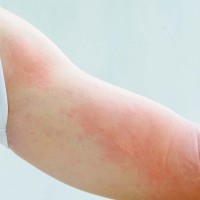
We usually associate hay fever with symptoms like watery eyes and a runny nose, but this common allergy can also affect your skin. If you are prone to hay fever, you may also be at higher risk of skin conditions such as eczema and allergies too.
How Hay Fever Affects Your Skin
Hay fever is caused by an allergic reaction to pollen, usually the pollen of a particular type of plant. While the symptoms are often limited to your nose, throat and airways, the allergic reaction to pollen can cause other symptoms too. You may develop red, itchy, blotchy patches or hives. The reaction can happen after breathing in pollen, but it is more likely to appear where the pollen has touched your skin.
Pollen and Eczema
Even if you don’t have hay fever, your skin can still be affected by pollen. You could still have a skin allergy to pollen. Pollen can also trigger skin conditions such as eczema. You might notice that your eczema gets worse after working in the garden or walking through long grass at the time of year when it’s releasing pollen. Rashes or eczema that gets worse at a particular time of the year or when you’ve been near specific types of plants could be caused by pollen.
Other Considerations
Eczema, asthma, hay fever and other allergies often go together. Many people who are affected by one of these conditions will also have another, or they will have a family member with one. It is important to be aware of the different ways that your body can be affected by triggers and allergens.
You should also remember that it is possible a rash could be linked to your hay fever medication. If you develop an itchy rash around your nose after using a nasal spray, you may need to change your medication.



